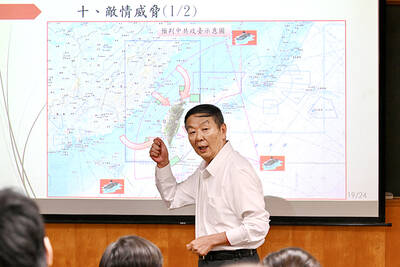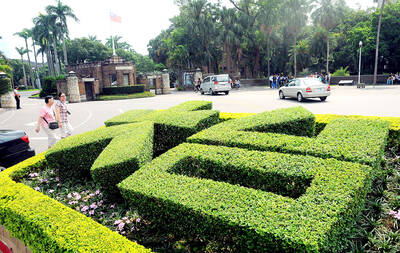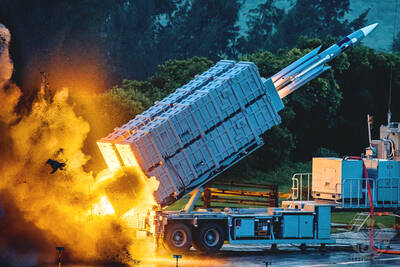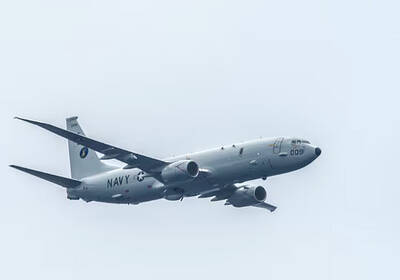Japan described China as an “unprecedented strategic challenge” in a new national security policy that sets the long-pacifist nation on course for its largest increase in defense spending since the end of World War II.
The new strategy, approved by Japanese Prime Minister Fumio Kishida’s Cabinet yesterday, laid out plans for Japan to develop its own hypersonic missiles as part of a radical upgrade of its defense capabilities, from the coast guard to cybersecurity.
The shift was triggered by Russia’s invasion of Ukraine, tensions over Taiwan that included Chinese missiles fired into waters close to Japanese islands earlier this year, and North Korea stepping up its missile launches, including one that recently flew over Japan.
The emphasis on China as a focus of security marks a break with past policy, which cited the threat from North Korea as the primary reason for the need to strengthen missile defense.
It comes as Kishida’s government attempts to warm ties with China after a summit with Chinese President Xi Jinping (習近平) in Thailand last month. Japanese Minister of Foreign Affairs Yoshimasa Hayashi could visit Beijing as this month, Japanese national broadcaster NHK reported.
“We see China as a strategic challenge to our country’s peace and safety, and the peace and stability of the international community,” Kishida said.
Referring to a “remarkable” buildup of missile capability in the region, the government said in the document that it is becoming difficult to deal with the situation simply by strengthening the country’s existing missile defense network.
The strategy calls for acquiring “counterstrike capability” that would enable Japan to target an enemy’s military facilities, in a turning point for a country bound by a pacifist constitution since 1947.
Raytheon Technologies Corp’s Tomahawk missiles are being considered for that purpose, according to the document.
Tomahawks have a range of more than 1,250km, meaning they could be used to hit naval bases on the east coasts of China and Russia.
Japan also intends to obtain sufficient supplies of missiles, including those made on its own, over the coming decade, with ranges long enough to strike military assets in the three nuclear-armed neighbors that have been a focus of Tokyo’s concerns.
With its new strategy in place, the government is considering revising the defense guidelines governing its military cooperation with its only formal treaty ally, the US, according to Kyodo News.
Kishida might raise the issue during a visit to the US being organized for next month, Kyodo said.
“Today, Prime Minister Kishida ushered in a new era in the defense of democracy. I want to congratulate him on his leadership,” US Ambassador to Japan Rahm Emanuel said in a statement.
China has made clear to Japan that it objects to the wording in the new documents, saying Beijing was committed to maintaining peace and stability.
Beijing’s diplomats filed a solemn representation with their Japanese counterparts about the new policy, Chinese Ministry of Foreign Affairs spokesman Wang Wenbin (汪文斌) said yesterday.
“It discredits China and we are firmly opposed to this,” he said.
Kishida previously announced plans to increase defense spending by about 60 percent to ¥43 trillion (US$313.4 billion) over the next five years.
Plans are also in place to raise Japan’s coast guard budget by 40 percent, Kyodo said.
South Korea plans to increase its defense spending to more than 70 trillion won (US$53.43 billion) annually by 2026.
China allocated an estimated US$293 billion to its military last year, according to the Stockholm International Peace Research Institute.

RETHINK? The defense ministry and Navy Command Headquarters could take over the indigenous submarine project and change its production timeline, a source said Admiral Huang Shu-kuang’s (黃曙光) resignation as head of the Indigenous Submarine Program and as a member of the National Security Council could affect the production of submarines, a source said yesterday. Huang in a statement last night said he had decided to resign due to national security concerns while expressing the hope that it would put a stop to political wrangling that only undermines the advancement of the nation’s defense capabilities. Taiwan People’s Party Legislator Vivian Huang (黃珊珊) yesterday said that the admiral, her older brother, felt it was time for him to step down and that he had completed what he

Taiwan has experienced its most significant improvement in the QS World University Rankings by Subject, data provided on Sunday by international higher education analyst Quacquarelli Symonds (QS) showed. Compared with last year’s edition of the rankings, which measure academic excellence and influence, Taiwanese universities made great improvements in the H Index metric, which evaluates research productivity and its impact, with a notable 30 percent increase overall, QS said. Taiwanese universities also made notable progress in the Citations per Paper metric, which measures the impact of research, achieving a 13 percent increase. Taiwanese universities gained 10 percent in Academic Reputation, but declined 18 percent

UNDER DISCUSSION: The combatant command would integrate fast attack boat and anti-ship missile groups to defend waters closest to the coastline, a source said The military could establish a new combatant command as early as 2026, which would be tasked with defending Taiwan’s territorial waters 24 nautical miles (44.4km) from the nation’s coastline, a source familiar with the matter said yesterday. The new command, which would fall under the Naval Command Headquarters, would be led by a vice admiral and integrate existing fast attack boat and anti-ship missile groups, along with the Naval Maritime Surveillance and Reconnaissance Command, said the source, who asked to remain anonymous. It could be launched by 2026, but details are being discussed and no final timetable has been announced, the source

CHINA REACTS: The patrol and reconnaissance plane ‘transited the Taiwan Strait in international airspace,’ the 7th Fleet said, while Taipei said it saw nothing unusual The US 7th Fleet yesterday said that a US Navy P-8A Poseidon flew through the Taiwan Strait, a day after US and Chinese defense heads held their first talks since November 2022 in an effort to reduce regional tensions. The patrol and reconnaissance plane “transited the Taiwan Strait in international airspace,” the 7th Fleet said in a news release. “By operating within the Taiwan Strait in accordance with international law, the United States upholds the navigational rights and freedoms of all nations.” In a separate statement, the Ministry of National Defense said that it monitored nearby waters and airspace as the aircraft